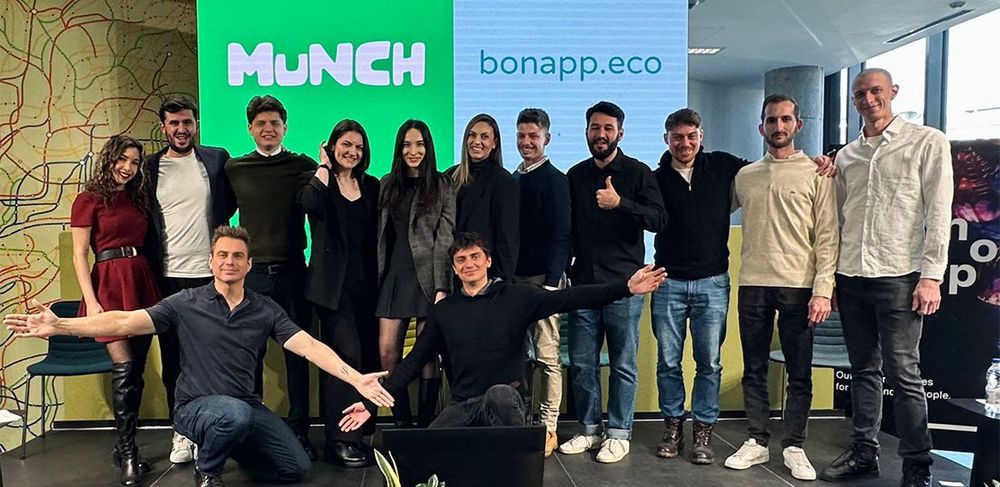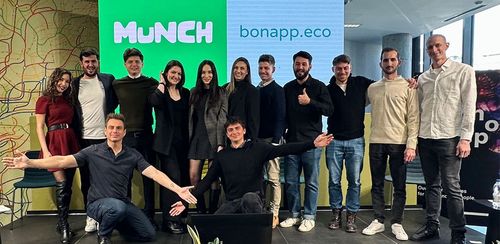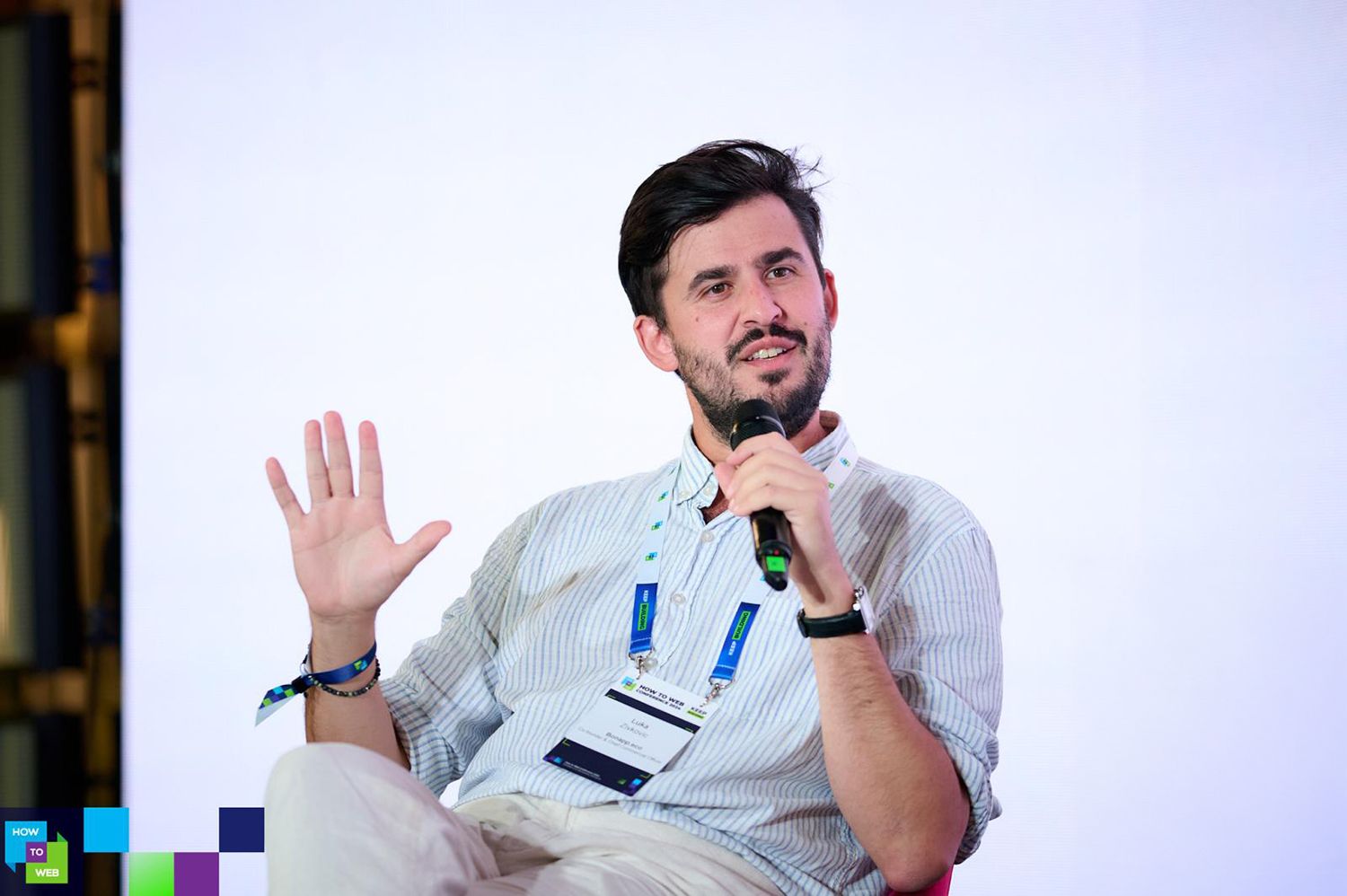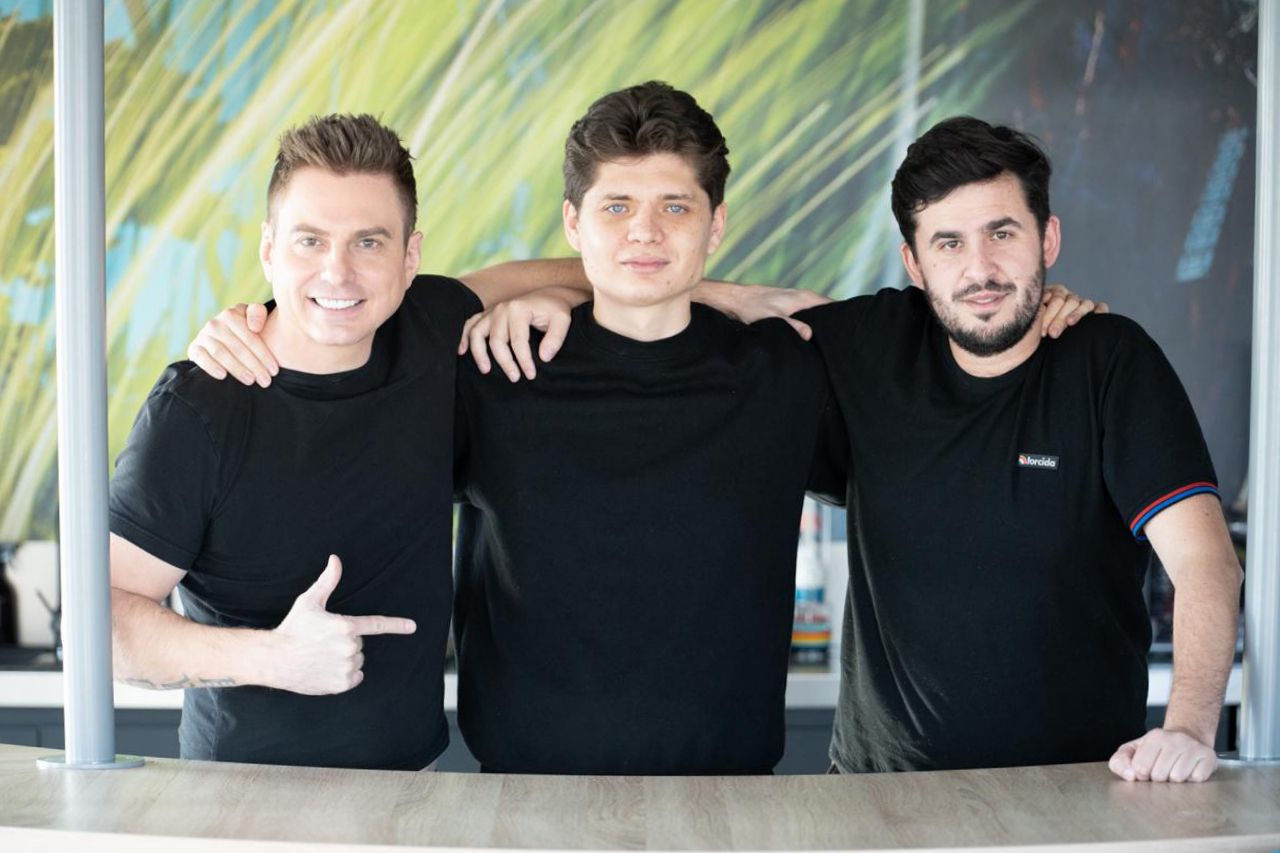

Luka, founder @Bonapp: When you need to take strong decisions, communicate transparently with your team

28 July, 2025
Share this article
Table of Contents
Bonapp is a Romanian start-up tackling one of today’s most pressing issues: food waste. Through their mobile app, they connect users with restaurants, grocery stores, and other food retailers offering surplus food at discounted prices, reducing waste while making quality food more affordable. Behind this innovative solution is Luka Zivkovic, Bonapp’s founder, whose vision goes beyond sustainability to building a strong, values-driven organization.
I have talked with Luka about what it really takes to build and grow a start-up, not just from a business perspective, but from the inside out. Our conversation focused on ways of working, team culture and what it means to create a healthy work environment in the dynamic, often unpredictable world of early-stage tech companies.
What is Bonapp and how did the idea go from a simple spark to a working product?
Bonapp was born from a shared conviction between my co-founders and myself – that entrepreneurship should solve the most pressing issues of our time. The idea was simple but powerful: to combat food waste by using technology to connect consumers with surplus food at an affordable price. Since launching in 2021, Bonapp has merged with Munch, and grown into a leading food waste reduction platform in Central and Eastern Europe, turning what was once a spark into a scalable and impactful solution for both consumers and retailers.

When you are building a new product or service from scratch, what does the day-to-day work actually look like? How is that different from working as an employee?
The difference is enormous. As a founder, you're constantly context-switching – from product discussions to operational firefighting to long-term strategy. Each day involves a mix of data analysis, decision-making, feedback loops, and above all, solving problems no one else is responsible for. Unlike being an employee, there's no one else to escalate issues to. You are the escalation point. You need to create clarity out of chaos, every single day.
In regards to the team, you need to be able to share your vision, and make everyone adhere to it. Then, you set up ambitious, yet clear objectives, that can be easily measured, for everyone to be able to access their progress in real-time.
What does your current team setup look like — remote, hybrid or office based? How has that changed over time?
Fully hybrid policy - we believe that each team member behaves responsibly, so we don’t have any strict policy in mind. However, Mondays are usually office days as we have most of our team meetings. However, Tuesdays, Wednesdays and Thursdays are NO-MEETING days for most team members to focus on their duties with partners/users effectively. Fridays are usually kept for other ad-hoc meetings and other admin tasks.
This no-meeting policy three days per week gave a significant impact on performance, as these are usually the best days to reach out to our existing partners, future partners and our users as well.
What has been key to keeping your team aligned and motivated, especially across distance?
Transparency and ownership are key. Every team member works toward simple, measurable OKRs (Objectives and Key Results). We review them monthly, and everyone knows what the others are focusing on.
Also, we also have a strong 360-feedback culture: everyone is encouraged to give and receive constructive input. That openness fosters trust and collaboration, and encourages people to speak and share their ideas.

From your experience, what kind of culture supports both innovation and purpose? And is remote work helping or hurting that? Can mission alone retain talent or does it take more?
Mission is a great hook, but it’s not enough. You need a culture that supports autonomy, experimentation, and failure. We encourage our team to take risks, test new ideas, and learn fast. Remote work has helped in some ways – people appreciate flexibility – but it also demands intentional communication. That’s why we emphasize structure, visibility, and shared purpose in everything we do. I also believe that every single person has different needs and work better in a different environment. Some of our people work better from home, because they can focus, while others may prefer to work mainly from the office, as it gives them structure and easier communication with other team members.
What is your personal why? Have you ever doubted the mission or yourself and what helped you push through those moments?
I’ve never doubted the mission. I believe deeply in fighting food waste and helping people access affordable food. But of course, there were tough moments, especially early on in Romania when market adoption was slow. What helped was stepping back, reassessing, and adapting. Every challenge is solvable if you keep listening, iterating, and learning.
What is one lesson that completely surprised you since launching Bonapp?
Starting a company is “difficult”, but you have no clue what “difficult” means. So you need to continuously adapt on the way.
How long it takes to close B2B deals with large retailers. We underestimated how slow the decision-making process can be in big corporations. Some conversations lasted over two years. It taught us to be patient and to build a pipeline that reflects those long sales cycles from the start.
What advice would you give someone who wants to build something with purpose but does not know where to start?
Start by solving a real problem you care about. Measure everything. Talk to users and experts constantly. Don’t be afraid to ask for feedback, entrepreneurs love helping each other. And finally, don’t be defensive nor let your ego get in the way. When you need to take strong decisions, communicate transparently with your team. Be open to being wrong and keep moving forward.
Interviews
Keep up to date with our most recent articles, events and all that Pluria has to offer you.
By subscribing to the newsletter you agree with the privacy policy.
The way we work has suffered dramatic changes in the past several years and, as a consequence, so did employee perks and benefits. Thinking beyond the traditional benefits package has become a necessity for [...]
04 December, 2023

A paper published in 2020 by the Harvard Business Review stated that productivity is closely related to the way teams are managed by their leaders. And the pandemic challenged managers to develop leadership[...]
04 December, 2023

Personally, during these last years I’ve been working mainly remotely & hybrid. This experience has taught me to constantly look for new methods to manage the projects, to communicate with the teams inv[...]
11 December, 2023